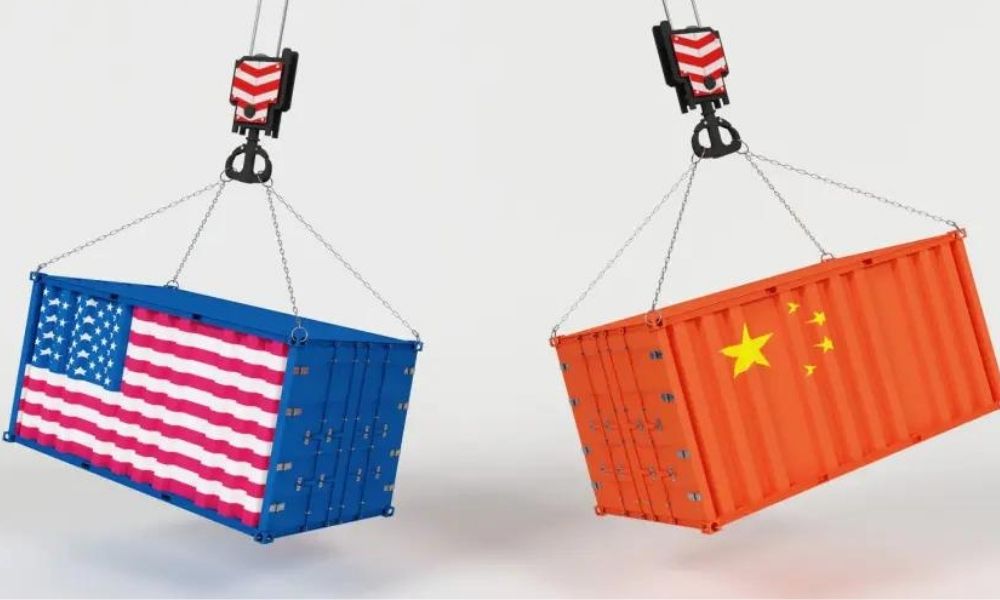International trade plays a vital role in the global economy, with goods and services being exchanged between countries on a daily basis. As part of this process, importers and exporters must navigate various procedures and regulations to ensure the smooth flow of goods across borders. One crucial step in the import process is the international shipment release import. In this article, we will explore what international shipment release import means, its significance, and the key factors involved.
Contents
Understanding International Shipment Release Import
International shipment release import refers to the process of releasing imported goods from customs control and allowing them to enter the importing country. It involves the completion of necessary documentation, compliance with customs regulations, and payment of any applicable duties or taxes. The release of the shipment signifies that the goods have been cleared for entry and can be delivered to the importer.
When an international shipment arrives at the port of entry, it is subject to customs inspection and clearance. The customs authorities verify the accuracy of the accompanying documentation, such as the commercial invoice, packing list, and bill of lading or airway bill. They also assess the value of the goods, determine the appropriate classification, and ensure compliance with import regulations.
Read:What are the benefits of composting?The Significance of International Shipment Release Import
The international shipment release import process is of utmost importance for several reasons:
- Customs Compliance: The release process ensures that imported goods comply with the customs regulations of the importing country. This includes adherence to import restrictions, licensing requirements, and product safety standards. By enforcing these regulations, countries protect their domestic industries, consumers, and national security interests.
- Revenue Collection: International shipment release import involves the assessment and collection of import duties, taxes, and fees. These charges contribute to the revenue of the importing country and help fund public services and infrastructure development. Proper valuation and classification of goods are crucial to ensure accurate duty calculation.
- Supply Chain Efficiency: Timely release of international shipments is essential for maintaining a smooth and efficient supply chain. Delays in the release process can disrupt production schedules, increase inventory holding costs, and impact customer satisfaction. Streamlining the release process minimizes these risks and facilitates just-in-time delivery.
- Trade Facilitation: International shipment release import is a key component of trade facilitation efforts aimed at reducing trade barriers and simplifying customs procedures. By implementing efficient release processes, countries can attract foreign investment, promote economic growth, and enhance their competitiveness in the global market.
Factors Involved in International Shipment Release Import
The international shipment release import process is influenced by various factors, including:
Read:What does key system error mean?- Customs Regulations: Each country has its own set of customs regulations governing the importation of goods. These regulations may include specific documentation requirements, import restrictions, and customs valuation methods. Importers must familiarize themselves with the customs regulations of the importing country to ensure compliance.
- Trade Agreements: Trade agreements between countries can impact the release process by providing preferential treatment to certain goods or reducing customs duties. For example, free trade agreements often eliminate or reduce tariffs on eligible products, making the release process faster and more cost-effective.
- Customs Brokers: Importers often engage the services of customs brokers to navigate the complexities of the release process. Customs brokers are licensed professionals who specialize in customs procedures and documentation. They assist importers in preparing and submitting the necessary paperwork, ensuring compliance with customs regulations, and facilitating the release of shipments.
- Electronic Data Interchange (EDI): Many countries have implemented electronic systems for the submission of customs documentation, known as Electronic Data Interchange or EDI. EDI allows importers to electronically transmit the required information to customs authorities, reducing paperwork and expediting the release process.
Case Study: The Impact of International Shipment Release Import on Global Supply Chains
To illustrate the significance of international shipment release import, let’s consider a case study involving a multinational electronics company.
Read:What are the benefits of global entry?Company XYZ, based in Country A, manufactures electronic devices and exports them to various countries worldwide. One of their key markets is Country B, where they have a significant customer base. To ensure a steady supply of products, Company XYZ relies on efficient international shipment release import processes.
When Company XYZ ships a container of electronic devices to Country B, they must comply with the customs regulations of Country B. This includes providing accurate documentation, such as the commercial invoice, packing list, and bill of lading. They also need to ensure that the goods meet the product safety standards and labeling requirements of Country B.
If the international shipment release import process is smooth and efficient, the container will be cleared by customs in a timely manner. The goods can then be delivered to Company XYZ’s customers, ensuring uninterrupted supply and customer satisfaction. However, if there are delays or issues during the release process, it can disrupt the supply chain, leading to production delays and customer dissatisfaction.
By investing in customs compliance, engaging customs brokers, and leveraging electronic data interchange systems, Company XYZ can streamline the international shipment release import process. This not only reduces the risk of delays but also enhances their competitiveness in the global market by ensuring reliable and efficient supply chain operations.
Summary
International shipment release import is a critical step in the import process, involving the release of imported goods from customs control and their entry into the importing country. It ensures customs compliance, facilitates revenue collection, enhances supply chain efficiency, and promotes trade facilitation. Factors such as customs regulations, trade agreements, customs brokers, and electronic data interchange systems influence the release process.
By understanding the significance of international shipment release import and effectively managing the associated factors, importers can navigate the complexities of global trade and ensure the smooth flow of goods across borders.









